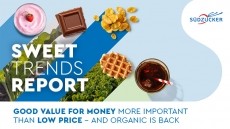Dietary fibre not yet proven to reduce colorectal cancer risk, says study
colorectal cancer, according to a study in today's issue of the
Journal of the American Medical Association (vol 294,
pp2849-2857).
The researchers are basing their findings on a re-examination of primary data from 13 prospective studies. The pooled analysis included 725,628 men and women who were followed up for six to 20 years across studies.
Dietary fibre has previously been reported to protect against several cancers, and was first linked to a reduced risk of colorectal cancer in the late 1960's. However, lead author Yikyung Park and his colleagues suggest that the evidence is still inconclusive and inconsistent.
"The association between dietary fibre intake and risk of colorectal cancer has been inconsistent among observational studies and several factors may explain the disparity: potential biases in each study, the failure to adjust for co-variates in the multivariate models, and the range of dietary fibre intake," the authors write.
Part of the problem appears to be the classification of the fibre. According to the authors, different forms of fibre behave in different ways, and can often result in confusion. They suggest that a more helpful classification would be 'soluble fibres' and 'insoluble fibres.'
In animal models, insoluble fibres such as wheat fibre have tended to result in a reduction of bowel cancer, whereas soluble fibres such as pectins have had the opposite effect. In human epidemiological studies the opposite pattern has been observed - soluble fruit and vegetable fibres have often been found to be protective while cereal fibres have not.
In their combined analysis of the previous studies, Park and his team did find evidence of an increased risk of colorectal cancer among people who had very low dietary fibre intake.
However, they also indicate that the collective evidence suggests that while a relatively modest minimum fibre intake can prevent an increased risk of the disease, there was no further reduction in risk at higher intakes.



























